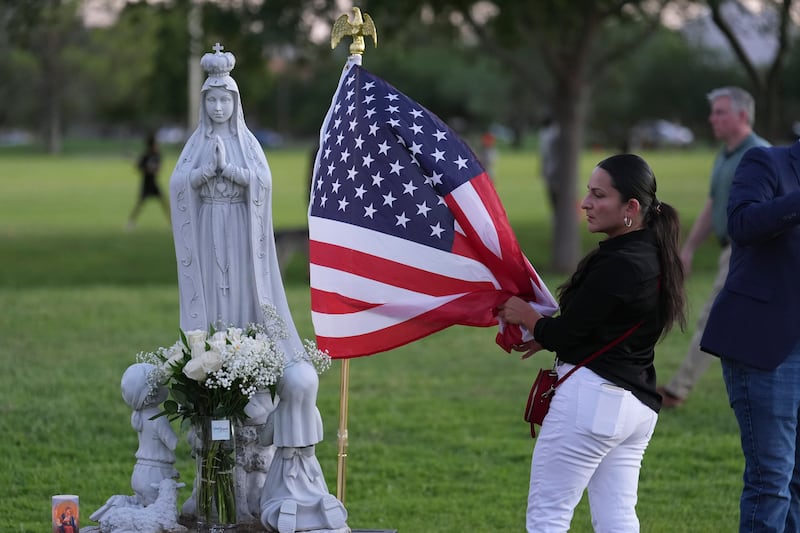The year was 1968. I was 9. My best friend’s name was Dennis.
I remember how we would play “assassination” in my bedroom. We took turns standing on a toy chest, pretending to give a speech. The other boy would pretend to be a shooter, and the “speaker” would fall dramatically off the chest and onto the floor.
From the perspective of 57 years this seems such a sad and disturbed game, but, like most child’s play, we were merely reflecting what we had seen in the grownup world around us.
My first clear memory in life is of the assassination of President John F. Kennedy. I was only 4, but the emotional reaction of the adults around me seared the images of that Friday, and the sad and violent weekend that followed, in my memory forever.
By the end of the summer of ‘68, my world had been invaded by the assassinations of the Rev. Martin Luther King Jr. and Sen. Robert F. Kennedy, followed by the chaotic and violent protests surrounding the Democratic National Convention. Vietnam was a word I heard constantly. I knew people at church who had lost sons and brothers there. The little girl who occasionally visited her grandparents next door to me had a daddy who was missing in action.
Sure, I was just a kid, but kids are not oblivious to the world around them. In a way I can’t fully explain, those early experiences led me toward a career in journalism. You could argue that was a healthy outlet for a series of disturbing stimuli.
Graphic videos
But what effect will today’s world have on its children?
I never saw a graphic video of RFK being shot. None existed. But by Wednesday afternoon this week, graphic videos of the murder of political activist Charlie Kirk on the UVU campus flooded the internet faster than social media companies could remove them. What effect will these have on the children and adolescents who saw them?
America, The Washington Post proclaimed Thursday, “is facing a new era of political violence reminiscent of some of its most bitter, tumultuous eras, including the 1960s…”
The newspaper quoted experts saying political violence is growing in frequency and seriousness “as more Americans believe the system does not work for them and feel frustrated and helpless.”
A broken nation
“Our nation is broken,” Utah Gov. Spencer Cox told a press conference Wednesday. “Nothing I say can unite us as a country. Nothing I can say right now can fix what is broken.”
Political violence is, of course, nothing new in the United States. It’s at least as old as Civil War battlefields and the presidential box at Ford’s Theater.
As I continued to mature in the 1970s, I watched reports of former Alabama Gov. George Wallace getting shot and President Gerald Ford narrowly escaping two botched attempts at assassinations. I was a college journalism student in 1981 when President Ronald Reagan survived being shot.
After that, the nation seemed to settle down to a more peaceful political period.
Turns out violence was only hiding just beneath the surface, however.
Is it hopeless?
In recent years we have seen violence at a congressional baseball practice, an attack on then-House Speaker Nancy Pelosi’s husband, the killing of a Minnesota state representative and her husband and the wounding of another and his wife, and the torching of the Pennsylvania governor’s house. We’ve seen Donald Trump shot in the ear and threatened by another gunman hiding near a golf course.
The incidents are becoming too numerous to remember. A Deseret News/Hinckley Institute of Politics poll last year found 43% of Utahns saying there are times when violence against government is justified.
It sounds hopeless.
And yet, we cannot simply proclaim that Americans are frustrated or that they feel helpless, leaving that flimsy excuse hanging in the air as some sort of justification. The point of a democratic republic is that the power to solve problems and end frustrations resides in the people. That has not changed.
The internet not only brings us graphic videos of political violence, but it also peddles the big lie that our constitutional form of government is no longer up to the task.
That certainly wasn’t something I heard as I played assassination with Dennis during the violence that happened all those years ago. It’s a thought Americans should find offensive as we strive to deal with today’s problems.


